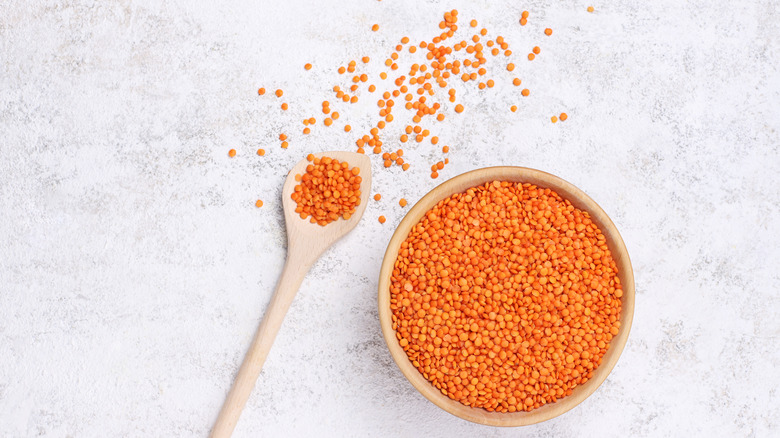You Should Stop Eating Lentils If This Happens To You
When it comes to nutrition, you can't beat lentils. You can find these vegetables in several colors, including red, black, yellow, and green, and according to Cooking Light, each one is better for certain dishes than others. For example, black lentils go well with other proteins and vegetables. Red and yellow lentils are slightly sweeter, and because they become softer when cooked, they do best in soups and stews. Green lentils have a peppery flavor, and while they go well in salads, they also work as a decent side dish. Brown lentils have an earthy flavor and are commonly used in veggie burgers because they hold their shape better than other lentils.
Also known as legumes, lentils are highly nutritious. They include a high amount of potassium, iron, folate, manganese, thiamin, zinc, and copper, according to WebMD. They also contain polyphenols, an antioxidant that is linked to fighting cancer. Lentils are also rich in resistant starch and fiber, two compounds that can improve the bacteria in your gut. And while you need fiber in your diet, eating too much of it might cause a bit of digestive discomfort.
Eating lentils can cause gas and bloating
Ironically, the fiber that makes lentils healthy might cause you to suffer from gas and bloating. According to Livestrong, eating too much might also make you constipated and possibly develop other digestive problems. According to SELF, indigestible sugars, called oligosaccharides, are at least partly to blame for this. Your intestines will still attempt to digest these sugars, which results in bloating and gas. Soaking lentils overnight in water may help alleviate bloating because it is believed that the water will absorb some of those sugars, meaning less end up in your intestines.
If you find that lentils cause you to bloat, you might need to take a break from eating them until your symptoms go away. SELF recommends adding them back into your diet slowly. Eat this, Not That! suggests adding about a tablespoon to a salad or rice dish as your body adjusts to them.


